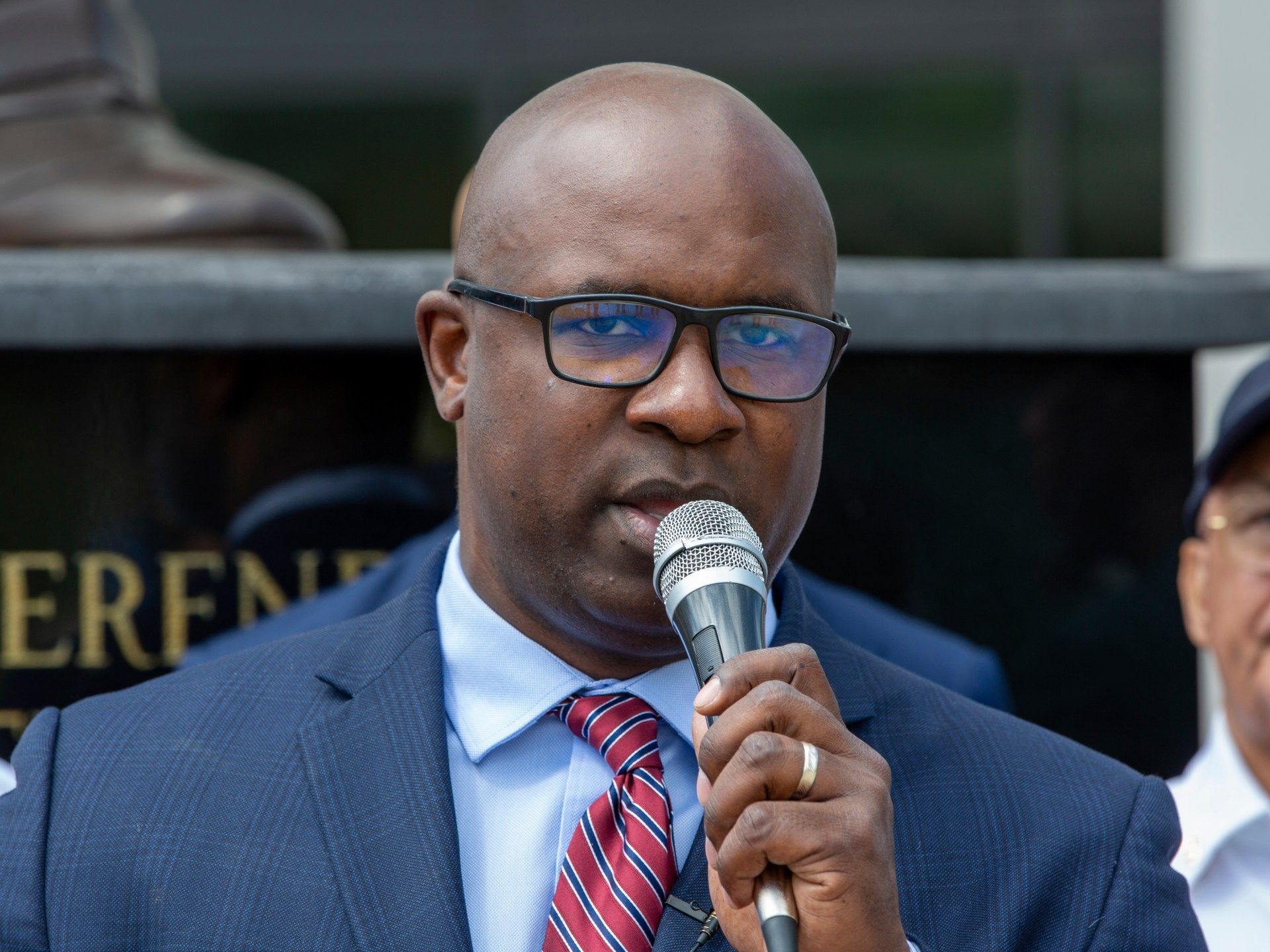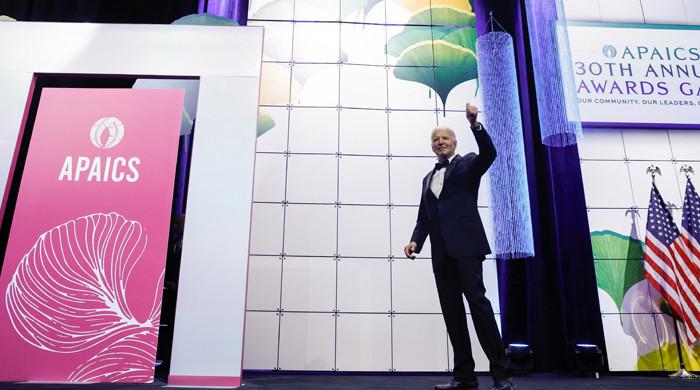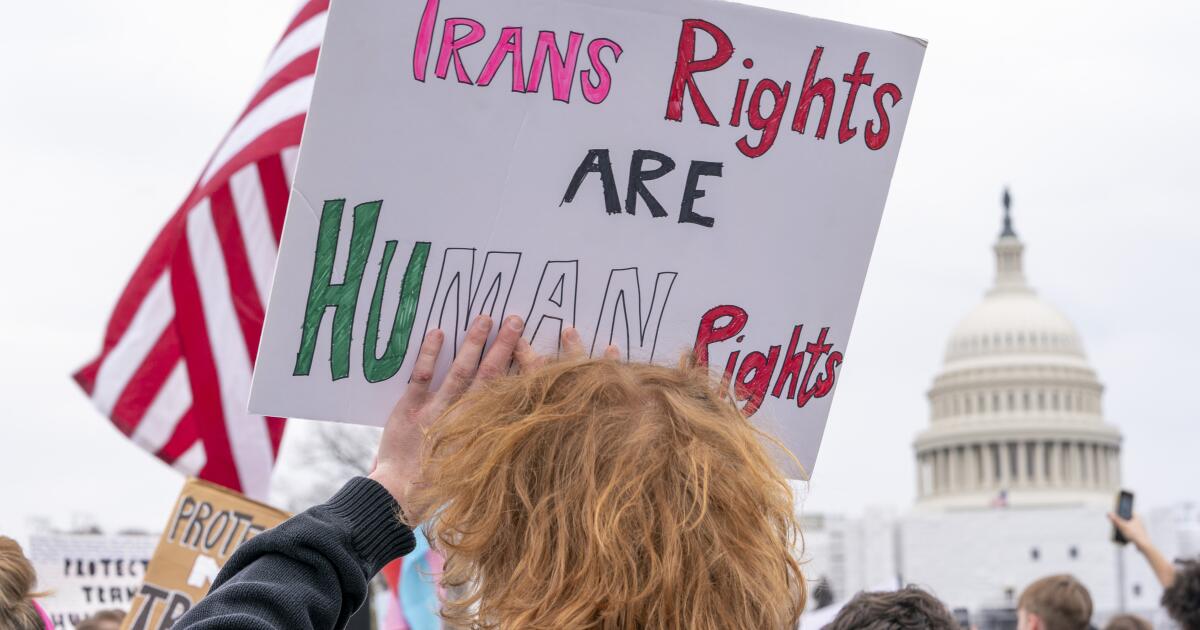Washington DC – Rep. Jamaal Bowman, one of the newest members of the progressive “squad” in the United States Congress, faces a fight for his political life.
On Tuesday he will defend his seat in the House of Representatives competing in the Democratic primary for New York's 16th Congressional District. But while incumbents are rarely challenged, Bowman faces one of the most expensive races in House primary history.
Progressive groups and politicians say the battle is a direct result of Bowman's vocal criticism of Israel's war in Gaza, as groups like the American Israel Public Affairs Committee (AIPAC) seek to unseat him.
Bowman is part of a small but growing number of voices in Congress questioning the United States' commitment to Israel, its “strong” ally. That, experts say, puts a target on his back.
“I'm not so sure there would be a primary if it weren't for the war in Gaza and the enormous influence that AIPAC and outside forces have had in this race, trying to press this issue and trying to get rid of Congressman Bowman. “Doug Gordon, a Democratic consultant and co-CEO of UpShift Strategies, told Al Jazeera.
To be sure, Gordon said, the challenge from George Latimer, a former county executive with deep political ties to the district, is a reflection of the infighting between progressives and centrists that has come to define the modern Democratic Party.
But divisions over American policy toward Israel – an issue that has been supercharged by the Oct. 7 attack on southern Israel and the resulting war in Gaza – have been the real animating factor in the race, Gordon explained.
It is a “fission point within the Democratic Party” that is “coming to a head in these primaries.”
“We spent more on this race than ever”
Fissures in the Democratic Party have become more pronounced as the war in Gaza drags on. The rising death toll in Gaza, growing reports of war crimes and evidence of possible genocide have further fueled division.
Bowman was one of the first US lawmakers to call for a ceasefire when the Israeli bombardment of Gaza began in October last year. He joined other progressives like Rashida Tlaib, Ilhan Omar, Cori Bush and Alexandria Ocasio-Cortez to propose a resolution to pressure President Joe Biden to stop the war.
A former public high school principal, the 48-year-old Bronx native gained national attention when he unseated a staunchly pro-Israel, establishment-backed candidate, Eliot Engel, in 2020, boosted by progressive groups like Justice Democrats.
But the unique makeup of Bowman's district has persistently made him one of the most vulnerable members of the progressive “squad.”
The district is a demographic mosaic: spanning urban areas of the Bronx and suburban areas of Westchester County, not to mention high- and low-income communities with sizable black, Hispanic and white populations.
A bizarre incident in which Bowman pulled the fire alarm at the Capitol before a vote on government spending has further contributed to his perceived weaknesses in this year's election.
AIPAC has taken note and launched a long-awaited media attack against Bowman at the end of May.
Bowman's district has been inundated with a historic $12 million in attack ads and messages, funded by AIPAC's super PAC, the United Democracy Project (UPD).
As a result of a 2010 Supreme Court decision known as Citizens United, super PACs can spend an unlimited amount on messaging in U.S. elections, as long as they do not coordinate with candidates or their campaigns.
In Bowman's case, AIPAC spending has accounted for more than half of the $22 million spent in the race so far, including $6 million from the candidate's own campaign coffers, according to a Journal News analysis. based in Westchester.
AIPAC's messaging has largely sought to portray Bowman as too radical for the district, a common tactic for the group, said Usamah Andrabi, communications director for Justice Democrats, which has led efforts to elect minority and leaning members. leftist in Congress.
Andrabi told Al Jazeera that he has noticed AIPAC taking a more direct role in primaries since launching its super PAC in 2022. It spent $5 million against progressive Democrat Summer Lee when she ran for the House that same year, For example.
According to Andrabi, Bowman's race will serve as a bellwether for other primaries featuring high-profile progressives like Missouri's Cori Bush, who faces her own challenge in August.
“I don't think there's a bigger story than the fact that AIPAC has spent more on this race than it has ever spent on an election, and has now become the largest source of spending by Republican primary donors. Democrats,” Andrabi said. he told Al Jazeera.
A recent campaign finance analysis by Politico found that while AIPAC receives donations from both Republicans and Democrats, it spends money disproportionately to influence Democratic primaries.
AIPAC is the “largest source of Republican money flowing into this year’s competitive Democratic primary,” according to the analysis.
“What AIPAC has done in just two cycles of having a super PAC is incomparable to some lobbyists who have spent decades and decades doing that work,” Andrabi said.
“AIPAC launched its super PAC last cycle and spent $26.5 million across nine Democratic primaries,” he added. “They've already spent half of that on the Jamaal primaries alone.”
Bowman has directly addressed the influx of spending. On June 13, he ran an ad highlighting AIPAC's support for Latimer, which Andrabi said could be the first such television ad to do so.

Racial issues also loomed large when Bowman and Latimer faced off on the debate stage earlier this month.
In one notable instance during their first debate, Latimer said that Bowman's “congressional district is Dearborn, Michigan,” a reference to a Midwestern city with an Arab-American majority. Dearborn has also been an epicenter of opposition to President Biden's support for Israel.
Several human rights groups condemned the comment, with Bowman calling it an anti-Arab and Islamophobic “dog whistle.”
For his part, Latimer has taken a pro-Israel stance, offering only serious criticism of Israeli Prime Minister Benjamin Netanyahu. He has publicly downplayed AIPAC's advertising spending, saying it was outside his control and did not affect his policy.
Latimer has also argued that his community connections and strong support from local officials make him more in tune with the district's voters. Former presidential candidate Hillary Clinton is among his supporters.
In turn, he accused Bowman of relying on support from national progressive groups that he said are out of step with the district's needs. Bowman has been endorsed by Bernie Sanders, whose challenge to Clinton in 2016 solidified him as a standard-bearer for the party's progressive flank.
Additionally, during their final debate on June 18, Latimer accused Bowman of “weaponizing race” and “cornering the market with lies.”
What does this all mean?
There are signs that efforts to eliminate Bowman at the primary stage are working.
An Emerson College poll released June 11 showed Latimer with a commanding lead: About 48 percent of Democratic voters supported Latimer, compared to 31 percent for Bowman. Another 21 percent remained undecided.
Strategists generally agree that to have any chance of victory, Bowman will need to energize voters who typically don't vote in party primaries, which traditionally have low turnout.
But regardless of the outcome, Craig Holman, government affairs lobbyist for the consumer rights group Public Citizen, said the race underscores the increasingly pronounced role of outside money in U.S. elections.
“This reaches a point where it is very worrying, where external spending can even exceed what the candidates spend. And that means that the candidates are not in charge of the campaigns,” he told Al Jazeera. “We've seen this happen occasionally before, but now we're seeing it happen more regularly, and that's problematic.”
Gordon, the Democratic consultant, added that outside influence is “putting voters in this district squarely in the crosshairs of the Democratic divide in [the Gaza war] and other issues.”
Still, Jeremy Cohan, spokesman for the New York chapter of the Democratic Socialists of America, which endorsed Bowman, saw a bright spot in AIPAC's increased spending.
“I see it, to some extent, as a sign of desperation,” Cohan said. He pointed to polls showing broad support in the United States for a ceasefire in Gaza, particularly among Democrats.
“They do it because they see where the tides move. “They see where the story is moving.”












